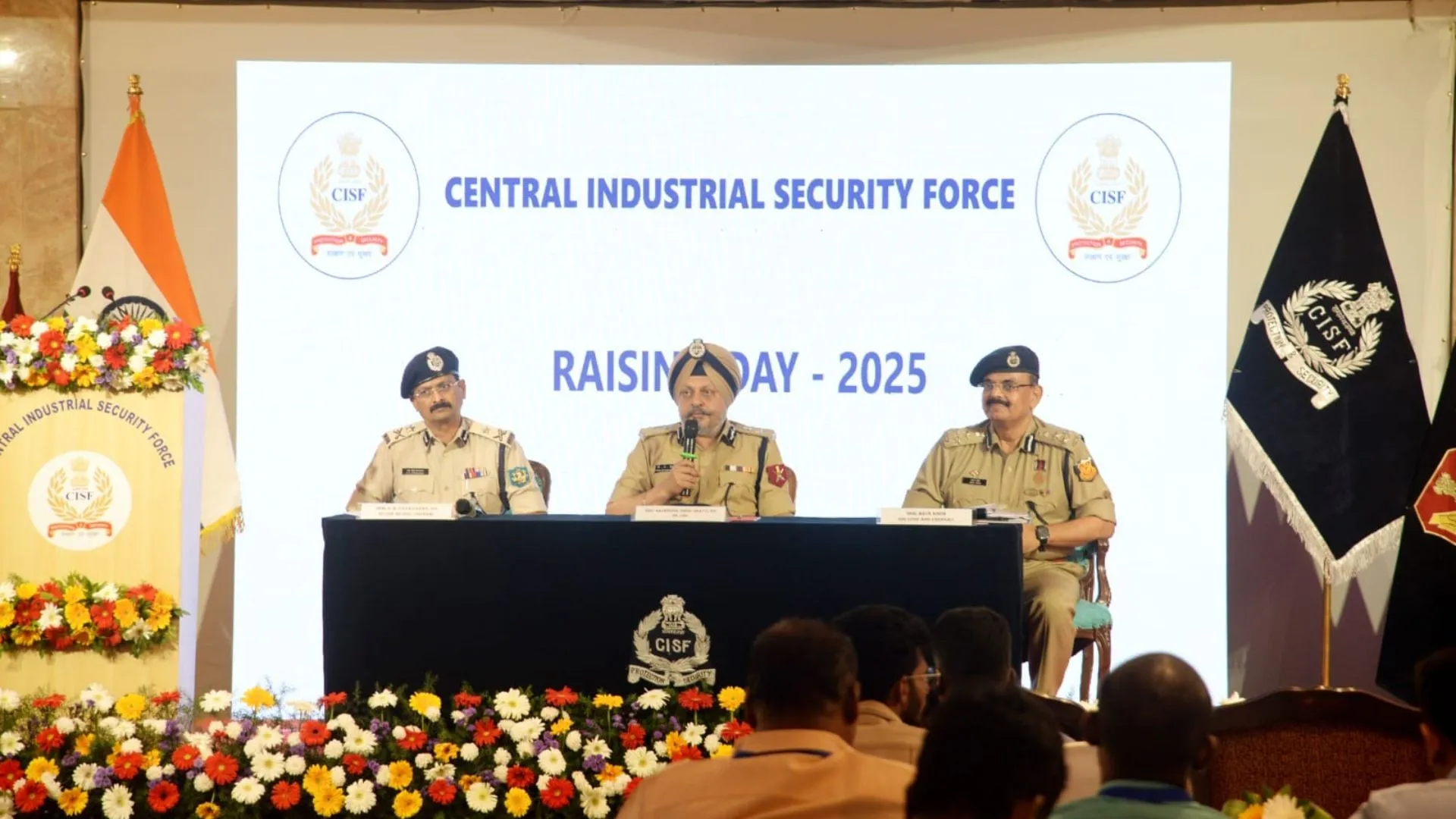The Central Industrial Security Force (CISF) will celebrate its 56th Raising Day on March 7, 2025, at its Rajadithya Chozhan Regional Training Centre in Thakkolam, Tamil Nadu. Union Home Minister Amit Shah will attend as the chief guest, where he will address CISF personnel and inaugurate several new infrastructure projects aimed at enhancing the force’s operational preparedness and welfare facilities.
The CISF, raised in 1969, has evolved into one of India’s most critical security forces. It provides security to 359 strategic installations across the country, including airports, metro networks, power plants, ports, nuclear facilities, and key government buildings. The force, now nearly two lakh strong, also secures individuals under threat through its Special Security Group, which protects over 150 persons.
In 2024, the CISF was responsible for securing the movement of nearly one crore people every day, spread across airports, the Delhi Metro, and various industrial and infrastructure sites. A remarkable 75 percent of its units reported zero crime over the past year, underscoring its reputation for effective security management.
Beyond its core duties, CISF personnel saved over 100 lives in 2024, responding to medical emergencies, fires, and suicide attempts. One such incident occurred in December, when personnel from Jawaharlal Nehru Port Authority and Mumbai Port Authority units rescued around 60 passengers, including children, after a collision between boats near Mumbai’s Gateway of India. CISF teams performed CPR, pulled victims from the water, and stabilized many of them before medical help arrived.
The Delhi Metro unit alone located 200 missing children in 2024 and reunited them with their families or child welfare authorities. CISF teams also assisted 481 women in distress during their journeys.
The CISF Fire Wing, with nearly 9,000 personnel, saved property worth over ₹1,000 crore in various fire incidents. Meanwhile, the force’s expertise in security consultancy continues to grow. Since 1999, CISF has provided consultancy services to 238 establishments, including Infosys, the Reserve Bank of India, AIIMS Delhi, and the Shri Ram Janmbhumi Teerth Kshetra in Ayodhya.
The force expanded significantly in 2024, with new deployments at Parliament House Complex in Delhi, Ayodhya Airport, Beas Satluj Link Project in Himachal Pradesh, Buxar Thermal Power Project in Bihar, and NTPC Coal Mining Project in Jharkhand. Inductions at Tuticorin and Vijayawada airports are under consideration.
Recruitment saw a major boost, with over 31,000 personnel being added across ranks. The CISF is also forming its first all-women battalion, focused on internal security duties. The Ministry of Home Affairs has further sanctioned two new battalions, raising the total number to 15.
Modern technology is now central to CISF’s operations. A dedicated drone and anti-drone training center has been set up in Rajasthan, while airports under CISF watch are being equipped with full-body scanners, AI-driven video analytics, and enhanced cybersecurity. A dog breeding center is also being established to meet the force’s growing need for highly trained K9 units.
Personnel welfare has received special attention. CISF introduced choice-based postings, allowing personnel with more than 10 years of service to list preferred locations, with special provisions for women, couples, and those nearing retirement. In 2024, CISF reported a suicide rate of 9.87 per lakh, significantly lower than the national average of 12.4 per lakh.
Family accommodation, a longstanding concern, is being addressed through new housing projects. In 2024, 701 residential quarters were acquired in Delhi, while 33 new housing projects worth ₹193 crore were approved. Another ₹875 crore worth of housing projects are under construction, with more in the pipeline.
On the health front, CISF is promoting millet-based meals and free daily honey to personnel in nearly 300 units. Yoga training has been institutionalized across the force, with at least one yoga trainer at every unit. Green energy is also a priority, with solar power installations being expanded across 16 CISF campuses under a new partnership with NTPC.
In sports, CISF personnel won 120 medals in 2024, including international, national, and All India Police Games competitions. To prepare for the 2036 Olympics, 300 young sportspersons will be recruited in 2025. A dedicated women’s hockey team is also being formed, and a new Regional Sports Centre in Hyderabad will focus on badminton, fencing, cycling, and lawn tennis. Preparations are in full swing for the World Police and Fire Games 2025 in Birmingham, USA.
CISF is also building specialized teams in cyber security, aviation security, and port security. Its new Internal Quality Control Unit for Aviation Security will ensure compliance with international standards at airports. The force has also developed a security roadmap for India’s ports, aligning with global maritime protocols, and will offer training to private security personnel deployed at ports.
Training programs for new recruits and serving personnel are being updated with new modules on aviation security, drone operations, cyber security, and legal frameworks. Under the ongoing modernization plan, CISF is acquiring advanced equipment such as portable X-ray scanners, containerized shooting ranges, bomb disposal tools, and surveillance drones. By 2030, the force plans to invest ₹819 crore in new technologies and infrastructure.
As part of the Raising Day celebrations, CISF will flag off a 6,553 km coastal cyclothon spanning the entire Indian coastline, starting from Lakhpat in Gujarat and Bakkhali in West Bengal, culminating at Kanyakumari on March 31. The Arakkonam training center will be renamed Rajadithya Chozhan RTC in a formal ceremony.
Speaking to reporters in Chennai ahead of the event, CISF Director General Rajwinder Singh Bhatti emphasized the force’s evolving role in securing critical infrastructure and its growing reliance on technology, professional expertise, and innovation to meet emerging threats.





















